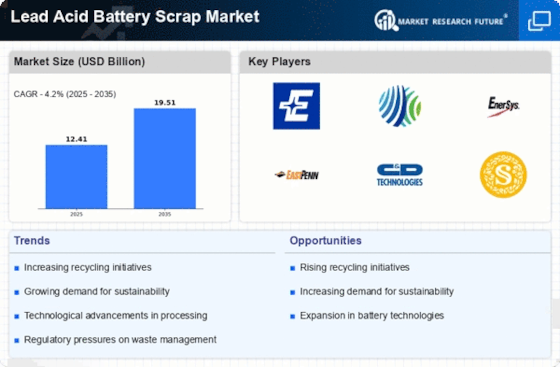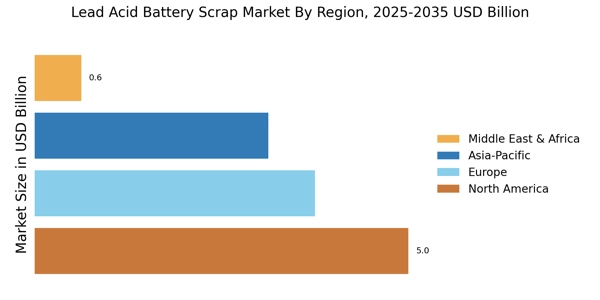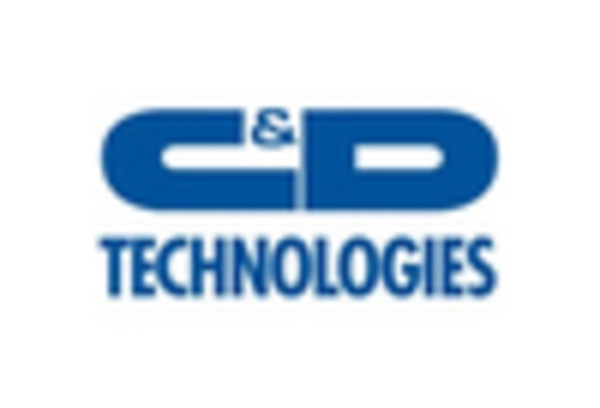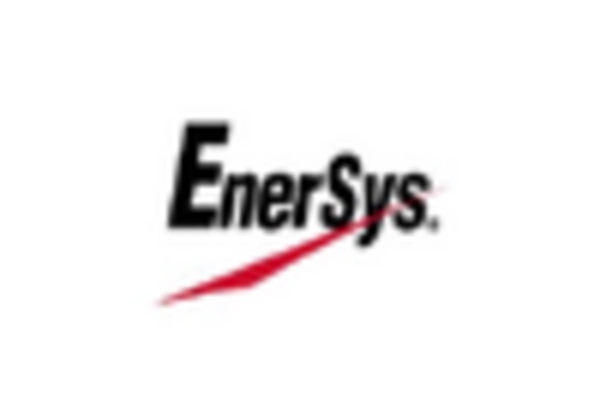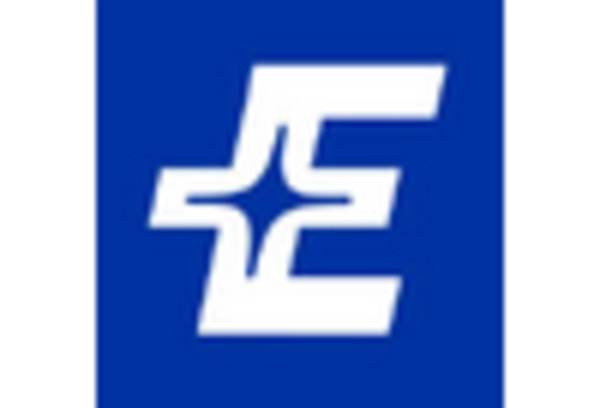Rising Electric Vehicle Adoption
The Lead Acid Battery Scrap Market is likely to benefit from the increasing adoption of electric vehicles (EVs). As the automotive industry shifts towards electrification, the demand for lead-acid batteries, particularly in hybrid vehicles, is expected to rise. This trend will subsequently lead to a higher volume of battery scrap as these vehicles reach the end of their life cycle. The anticipated growth in the EV market could result in a significant influx of lead-acid battery scrap, thereby providing opportunities for recycling companies to expand their operations and enhance their processing capabilities.
Increasing Demand for Recycled Materials
The Lead Acid Battery Scrap Market is experiencing a notable surge in demand for recycled materials. This trend is largely driven by the growing emphasis on sustainability and environmental conservation. As industries and consumers alike become more environmentally conscious, the need for recycled lead and other materials from used batteries is expected to rise. In 2025, the recycling rate for lead-acid batteries is projected to reach approximately 95%, indicating a robust market for scrap. This heightened demand not only supports the circular economy but also reduces the reliance on virgin materials, thereby fostering a more sustainable approach to battery production and disposal.
Growing Awareness of Environmental Impact
The Lead Acid Battery Scrap Market is witnessing a growing awareness regarding the environmental impact of battery disposal. As consumers and businesses become more informed about the hazards associated with improper battery disposal, there is an increasing push towards responsible recycling practices. This heightened awareness is likely to drive the collection and recycling of lead-acid batteries, as stakeholders seek to mitigate environmental risks. The market may see a rise in initiatives aimed at educating the public about the importance of recycling battery scrap, further bolstering the industry's growth.
Regulatory Support for Recycling Initiatives
The Lead Acid Battery Scrap Market is significantly influenced by regulatory frameworks that promote recycling initiatives. Governments across various regions are implementing stringent regulations aimed at managing battery waste and encouraging recycling practices. For instance, policies mandating the collection and recycling of lead-acid batteries are becoming more prevalent. These regulations not only facilitate the safe disposal of hazardous materials but also incentivize the recycling of battery scrap. As a result, the market is likely to witness an increase in the collection and processing of lead-acid battery scrap, thereby enhancing the overall recycling ecosystem.
Technological Innovations in Recycling Processes
Technological advancements are playing a crucial role in shaping the Lead Acid Battery Scrap Market. Innovations in recycling processes, such as hydrometallurgical techniques and automated sorting systems, are enhancing the efficiency and effectiveness of lead recovery from battery scrap. These technologies not only improve yield rates but also reduce operational costs, making recycling more economically viable. As these technologies continue to evolve, they are expected to attract investments and drive growth within the market. The integration of advanced technologies could potentially lead to a more streamlined recycling process, thereby increasing the overall supply of recycled lead.


